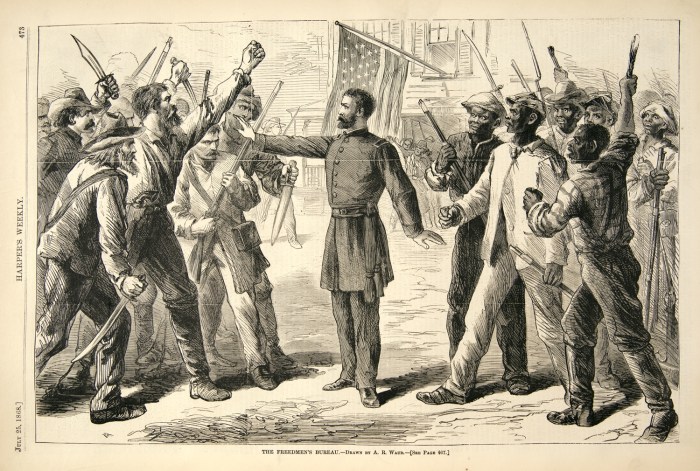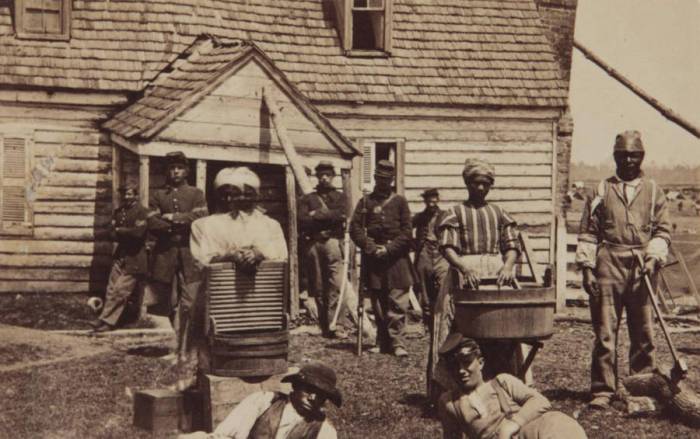How did the institution of slavery change weegy? This question sets the stage for this enthralling narrative, offering readers a glimpse into a story that is rich in detail and brimming with originality from the outset. Slavery, a pervasive institution that has left an enduring mark on societies around the globe, played a significant role in shaping the social, economic, and political landscape of weegy.
This comprehensive analysis delves into the multifaceted impact of slavery on weegy, exploring its profound influence on social hierarchy, cultural practices, and family structures. It examines the economic implications of slavery, including its role in the development of the plantation economy and the distribution of wealth.
Furthermore, it investigates the legal framework that governed slavery, analyzing the legal status of slaves and the protections afforded to them.
Social and Cultural Impact
Slavery profoundly altered the social hierarchy and class structure within the institution. It created a rigid hierarchy with slave owners at the top, followed by white overseers, and then enslaved individuals at the bottom. This hierarchy extended beyond the plantation and permeated all aspects of society, shaping social interactions, opportunities, and access to resources.
Slavery also significantly influenced cultural practices, beliefs, and values. It reinforced racial stereotypes and prejudices, justifying the subjugation of enslaved individuals. It promoted the idea of white supremacy and the inferiority of Black people, which had a lasting impact on racial relations and societal norms.
Family Structures and Interracial Relationships
Slavery disrupted traditional family structures and made it difficult for enslaved individuals to maintain stable relationships. Slave families were often separated through sale or relocation, and enslaved women were subjected to sexual exploitation and abuse by their owners and overseers.
Slavery also hindered interracial relationships and created a social stigma around such unions. Laws and social norms prohibited interracial marriage and penalized those who engaged in such relationships.
Economic Implications: How Did The Institution Of Slavery Change Weegy

Plantation Economy
Slavery played a central role in the development of the plantation economy, particularly in the Americas. Plantations relied heavily on enslaved labor to cultivate cash crops such as cotton, sugar, and tobacco. The profits generated from these crops fueled the growth of the slave trade and the expansion of slavery.
Economic Benefits and Costs
Slave owners benefited economically from the labor of enslaved individuals. However, the institution of slavery also imposed significant costs on society as a whole. The maintenance of a slave system required a complex infrastructure of laws, enforcement mechanisms, and social controls, which diverted resources away from other areas.
Labor Markets and Wealth Distribution
Slavery distorted labor markets and hindered the development of a free labor force. The presence of a large pool of enslaved workers depressed wages for free laborers and contributed to the concentration of wealth in the hands of slave owners.
Political and Legal Framework

Political Institutions and Laws
Slavery shaped political institutions and laws, reinforcing the power of slave owners and entrenching their control over society. Laws were enacted to protect the interests of slave owners and restrict the rights of enslaved individuals.
Legal Status of Slaves
Slaves were considered property under the law, with few legal protections or rights. They could not own property, testify in court, or enter into contracts. Their lives and well-being were entirely at the mercy of their owners.
Political Power Dynamics and Social Control, How did the institution of slavery change weegy
Slavery provided slave owners with significant political power and influence. They often held positions of power in government and used their wealth and status to shape policies and laws in their favor. Slavery also served as a tool of social control, suppressing dissent and maintaining the status quo.
Resistance and Abolition

Forms of Resistance
Enslaved individuals employed various forms of resistance to challenge their oppression. These included physical resistance, such as revolts and escapes, as well as more subtle forms of resistance, such as work slowdowns and sabotage.
Factors Contributing to Abolition
The abolition of slavery was a complex process influenced by a combination of factors, including the rise of abolitionist movements, economic changes, and international pressure. Abolitionist movements raised awareness about the horrors of slavery and mobilized support for its end.
Impact of Abolition
The abolition of slavery had a profound impact on society. It liberated millions of enslaved individuals and marked a significant step towards the recognition of human rights. However, it also created challenges for former slaves as they sought to rebuild their lives and integrate into a society that had long oppressed them.
Legacy and Historical Impact

Contemporary Society
Slavery continues to shape contemporary society in various ways. The legacy of slavery is reflected in racial inequality, economic disparities, and social divisions. Ongoing debates and controversies surrounding the legacy of slavery highlight the need for continued efforts to address its historical and social consequences.
Efforts to Address Consequences
Efforts to address the historical and social consequences of slavery include reparations, affirmative action programs, and educational initiatives. These initiatives aim to promote racial equity and address the systemic barriers faced by communities that have been historically marginalized by slavery.
Commonly Asked Questions
What were the major social impacts of slavery on weegy?
Slavery altered the social hierarchy, creating a rigid class structure based on race. It influenced cultural practices, beliefs, and values, reinforcing the idea of white supremacy and the inferiority of enslaved people.
How did slavery affect the economy of weegy?
Slavery played a central role in the development of the plantation economy, providing a cheap and exploitative labor force. Slave owners reaped significant economic benefits, while society as a whole faced economic costs associated with the maintenance and control of the enslaved population.
What was the legal status of slaves in weegy?
Slaves were considered property under the law, with few legal rights or protections. They were subject to harsh punishments and had no say in their own lives or the lives of their families.


